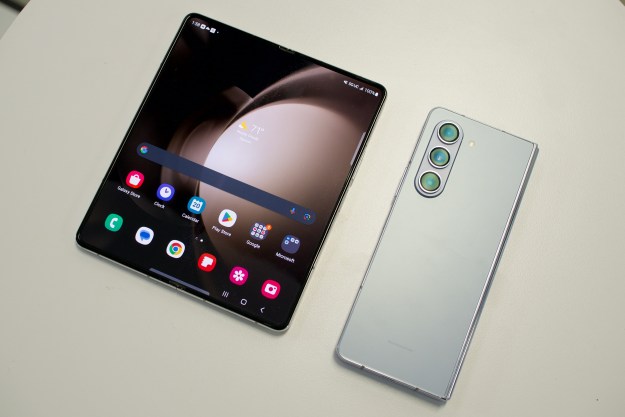 For three days last week, police in Dubai and Abu Dhabi were scratching their heads in confusion, perplexed by the fact that they were receiving far fewer calls to traffic accidents than usual.
For three days last week, police in Dubai and Abu Dhabi were scratching their heads in confusion, perplexed by the fact that they were receiving far fewer calls to traffic accidents than usual.
Then on Thursday the accident rate returned to normal. It was then that the police made the connection. The improvement in driving could, they believed, be attributed to the BlackBerry service outage which affected millions of phone users around the world, including those in Dubai and Abu Dhabi.
Research In Motion’s BlackBerry phones are popular in the Middle East, so the loss of service meant that instead of surfing the Internet, sending messages and tapping out emails, many drivers were actually doing what they should be doing while on the road – driving.
According to the South Atlantic News Agency, there’s a traffic accident in Dubai every three minutes, while in Abu Dhabi someone dies on the roads every two days. During the BlackBerry outage, however, accidents on the roads of Dubai dropped by 20 percent, while in neighboring Abu Dhabi an astonishing 40 percent fewer accidents were reported, with no fatalities at all taking place.
Dubai police said that last week saw “a significant drop in accidents by young drivers and men on those three days,” adding that young people were the biggest users of the popular BlackBerry Messenger service.
Al Harethi of Abu Dhabi police appeared to be more than happy about RIM’s service failure. “Absolutely nothing has happened in the past week in terms of killings on the road and we’re really glad about that,” he said. “People are slowly starting to realize the dangers of using their phone while driving. The roads became much safer when BlackBerry stopped working.”
As a way of apologizing for the severe service disruption, RIM has announced that it will be offering a selection of free apps to BlackBerry users in the coming weeks.
[via Cnet] [Image courtesy of marema / Shutterstock]

